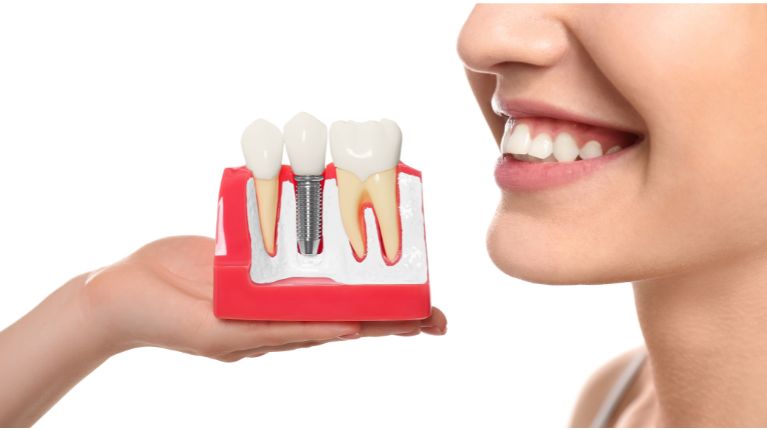Before Surgery

What are dental implants?
Dental implants are used to replace one or several missing teeth. They are small metal screws (usually made of titanium, a titanium alloy or a ceramic like zirconia) that are placed into the jawbone to act like artificial tooth roots. Over time, they integrate with the jawbone and become fixed in place. A false tooth, known as a restoration or crown, is fitted on top.
Who can have dental implants?
Most adults with good dental and general health will be suitable for dental implants. Treatment may not be appropriate for young people whose jawbones are still developing, for people who drink and/or smoke heavily, or for those who have gum disease. Everyone is different and has unique needs, so it’s important to speak to your dentist.
Are dental implants available through the NHS?
Dental implants are only available on the NHS in exceptional circumstances – to replace teeth that are missing from a congenital disease or destructive tumour of the face or mouth.
Are dental implants safe?
There are always risks associated with any medical procedure, and your dentist will discuss everything you need to know about your dental implant(s) with you. However, there is an extensive amount of clinical research demonstrating the safety of dental implants. This treatment procedure also has a very high success rate as reported in the dental/medical literature. As long as you visit a reputable dentist/oral surgeon with the appropriate training and materials, the risks will be minimised.
How much do implants cost?
The cost of dental implant treatment will vary considerably between patients. That’s because it depends on many different factors, including how many dental implants are needed, where in the mouth they’re required, and whether you need any supportive therapies to improve your gum or bone health before surgery. As a ball park figure, a single dental implant typically costs between £1,500 and £4,000. Once your dentist has created a bespoke treatment plan for you, they will provide a detailed break-down of all the costs involved so you know exactly what to expect.
While the price must be considered, it can’t be stressed enough the importance of seeking safe and high-quality treatment as a priority. Several ‘cheaper’ options can be found, but they are often not what they seem. Seeking dental treatment – especially something as advanced as dental implants – in another country can be risky. Many don’t abide by the same high standards that we must meet in the UK, and the lower price may reflect cheaper products and components, or poorer aftercare. In addition, if anything were to go wrong when you returned to the UK, your overseas dentist may not be able to provide a solution and if they can, you would have to pay again to fix the problem.
What other procedures may be needed?
There are a few procedures that can be provided either at the same time as a dental implant, before or after. For example, bone grafting may be needed to build up the bone and ensure there is enough to correctly support the dental implant. Soft tissue grafting may also be recommended to improve the appearance of the gums at the implant site and ensure a beautiful smile. Your dentist will be able to discuss all options that might be suitable for you in detail.